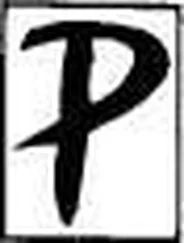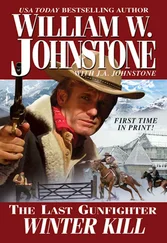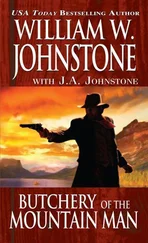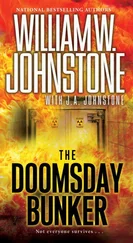If I had any sense, he thought, I would wait until the column is long past, get in my truck, and head west. But I would feel like Pilate if I did. Those little boys talking the other evening, when they thought no one could hear them (and God I wish I had not), talking of the general being a god. And those teenage boys and girls who joined them—they should have known better; should have corrected the younger ones immediately.
But they didn’t.
I am not a god. I am merely a man who is ten years past true middle age. Maybe I don’t feel it; some say I don’t look it, but it’s not good to attempt to alter the truth.
A god. Damn!
When did this start? Did it begin back in ‘88? If so, why didn’t I catch it then?
A god.
How to stop the talk? What to do? Anything? Yes—of course. Something must be done. But what? And how? Do I go to the parents and tell them what I heard? But according to other whispered conversations I have overheard and from the looks I have finally put together after being deaf, dumb, and blind for only the true God knows how long, many of the parents might share that foolish belief. If not to the extent of their kids, at least a bit.
Ben rose from his squat, very conscious he was not as young as he once was (the muscles in his calves were aching from the strain of the unfamiliar position), and walked slowly back to his truck. He had made up his mind: he would see the people located and settled, the society firmed up into a fair and productive existence for those who had placed their faith in him; and then he would, as the saying went, quietly fold his tents and slip away.
He hoped he would have the courage to do that when the time came.
* * *
Ben stayed by himself after that, driving alone, sleeping alone, taking his meals alone, being alone. He knew his actions would bring talk, and that proved correct, but he felt it could not be helped. The people had to learn to get along without him. This was the first step in that process.
As the days of spring warmed and slipped by, the column angled into the Oklahoma Panhandle and stayed on secondary roads and state highways until they were south of Oklahoma City, then the lead scouts turned straight east. Seventeen days after leaving Idaho, the first trucks began rolling into Arkansas.
But the legend of Ben Raines did not diminish by his actions of late. It grew. More of his followers began viewing him as something more than just flesh and blood. Many began seeing him and the weapon he carried as though he possessed a power that was somehow of a higher plane than mere mortals.
And a few days after the column reached Arkansas, almost everyone in his command turned their faces toward Ben, looking for direction.
And he did not want the job.
* * *
“General,” a young radio operator said. Ben and Ike and Cecil turned at the voice. “I was spinning the dials on one of our radios, you know, like we do all the time, hoping to receive something. Well,” he paused, “we got a tape recording. Maybe, sir, you’d better hear this with your own ears, sir.”
“Lead on, son,” Ben said with a smile.
The young man returned the smile. He liked to be around the general. Ben Raines was always so… so unflappable, so sure of himself. He never seemed to get excited or upset. Maybe it was true what a lot of folks said about him. The young man didn’t know for sure, but…
The radio was on when Ben and the others reached the temporary communications shack. The voice coming from the speakers was weak. “…am recording this on a continuous loop. Sick. Don’t know how much longer I can hold on. Medicines ran out. Thought the plague problem would be gone this spring. Wrong. Rats came back. Fleas—God, the fleas. Everywhere.
“This is Armed Forces Radio from Fort Tonopah, Nevada…. think I’m the last one alive on the base. Big rats hit us in a… bunch few days ago. Wiped us out in 72 hours. Don’t think there is any help for me. Experiment broadcasting here; sun provides… power. Should keep transmitting long after… I’m gone. New-type plague the medics… said. Chills, fever, vomiting. Tongues swelled up and turned black. Died… rats been chewing on this building for couple days. Never seen such big rats. I…”
The tape hissed in its cart for a few minutes. Then the same message was repeated.
The radio operator said, “We have one more tape, sir.” He changed frequencies.
“This is a recording from Calgary. I have put this on a continuous loop. Plugged the generator into a bulk tank, so it should broadcast for weeks, maybe months. Twice a day; automatic shutdown and on. I will be dead in a few hours, but someone must know what is happening. A scientist from Montreal was with me for several days; explained what he thought had happened. He killed himself last night… that would be…. I don’t even know what month it is anymore.
“The rats are mutant—he said that should have been expected and no one should have been surprised. All the radiation and God only knows what type of germs in the air from the bombings of ’88.
“He said the rats were, for years, content. They had plenty of food to eat in the ravaged cities and towns of the world. But a rat is very prolific. One pair can be responsible for thousands. Thousands turn into millions, then billions. But as they overproduced, they had to leave the dead cities in search of food. They carried disease in and on them. We could deal with the mutants; we could even feel sorry for those poor grotesque creatures. But we could not deal with millions upon millions of rats. When we saw we were to be overrun by them, we worked feverishly in setting up this station. The mutants are hideous things to witness; but who do we blame for them? Ourselves, of course. Gerard, the scientist, said he believes the rats will soon die out—they are infected from within. He says. For me, it is too late. They have found a way in. I am putting a bullet in my brain. Better than facing them crawling all over me, gnawing at my flesh. Good-bye.”
After a few seconds, the tape began repeating.
“Record both those tapes,” Ben told the operator. “Make copies of them and save them. The world will want to know—hundreds of years from now.” I hope, he silently added.
“Mutants, General?” someone asked from the crowd in or outside the small communications shack.
“That’s what the man said,” Ben told them. “And, like he said, it should come as no surprise. Most of you people forty or older were raised on horror movies. Most of us have read the scientists’ opinions about what could happen to the human race after a global nuclear war; add to that the germ warheads that bombarded the countries of the world. All right, now we’ve got it to face and whip it, so we can go on living and producing and rebuilding a modern society.
“We are not alone—we’ve seen that, many of us. More pockets of survivors will surface as the weeks and months pass and the plague fades and finally dies. And we are going to rebuild. Bet on it.”
He pushed his way out of the building and faced the crowd.
“Get busy,” he ordered them. “We haven’t got time for lollygagging about. There are gardens to be planted; fields to be plowed and planted; electricity to be restored; homes to be sprayed and repaired. There is a lot to be done, so let’s do it. We’ll deal with boogymen if and when we are confronted by them. And I hope I have made myself clear on the subject.”
* * *
May drifted lazily into June and the fifty-eight hundred men, women, and children that now called this part of the country home, began to drift into the areas they had picked to occupy.
Much of this country had not been lived in—by humans—for twelve years, and it does not take nature long to reclaim what is naturally hers. Vegetation now covered many county and parish roads, and vine-like creepers enveloped many nice homes.
Читать дальше










